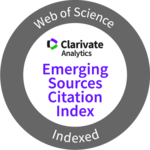Política de Ética y Buenas Prácticas
Revista de Teología adhiere a las Core Practices de COPE (Committe on Publication Ethics), por lo que se compromete a abordar todas las sospechas de malas prácticas y a seguir procedimientos justos y transparentes para mantener la confianza de la comunidad académica en la integridad de la publicación.
Definición de Malas Prácticas
Las malas prácticas por parte de los autores incluyen, pero no se limitan a:
- Plagio: presentar el trabajo de otros como propio sin la debida acreditación.
- Falsificación: manipular materiales, equipos o procesos de investigación para obtener resultados deseados.
- Fabricación: inventar datos o resultados y registrarlos como si fueran reales.
- Publicación redundante: enviar o publicar el mismo manuscrito en más de una revista sin notificar a los editores.
- Manipulación de la autoría: incluir autores que no han contribuido significativamente al trabajo o excluir a quienes sí lo han hecho.
- No declarar conflictos de intereses: no revelar conflictos de intereses que puedan influir en los resultados o la interpretación de la investigación.
- Falta de aprobación ética: realizar investigaciones que involucren sujetos humanos o animales sin la debida aprobación ética.
Procedimientos para identificar y manejar malas prácticas
Herramientas antiplagio: todos los manuscritos enviados a Revista Teología serán revisados utilizando el software Turnitin Similarity.
Revisión por pares: los revisores y editores están capacitados para reconocer indicios de malas prácticas.
Recepción de denuncias: autores, lectores, revisores o miembros del comité editorial pueden alertar a la revista en caso de sospechar o tener indicios de malas prácticas en artículos que se encuentren en fase de revisión o ya publicados. Las denuncias deben ser enviadas al director de la revista.
Si se sospecha o se recibe una denuncia por malas prácticas se procederá de la siguiente manera:
- Evaluación inicial: el director de la revista llevará a cabo una revisión preliminar para evaluar la validez de las preocupaciones planteadas.
- Notificación a los autores: los autores serán notificados de la sospecha y se les dará la oportunidad de proporcionar una explicación.
- Comité de ética: si la explicación no es satisfactoria, el caso será remitido a un comité de ética independiente para una investigación más profunda.
Acciones correctivas
Revista Teología llevará a cabo las siguientes acciones en caso de comprobarse que un autor o grupo de autores incurrió en malas prácticas:
- Rechazo del manuscrito: si se confirman las malas prácticas antes de la publicación, el manuscrito será rechazado.
- Retracción: si se confirman las malas prácticas después de la publicación, se emitirá una retracción oficial del artículo y se notificará a las instituciones de los autores [Ver Política sobre Retracción de Artículos]
- Expresiones de preocupación: en casos donde no se pueda llegar a una conclusión definitiva, se publicará una expresión de preocupación para alertar a los lectores.
- Prohibición de envíos futuros: los autores implicados en malas prácticas no podrán enviar futuros manuscritos a Revista Teología.
Comunicación y transparencia
Informes públicos: las decisiones de retractar un artículo o emitir una expresión de preocupación serán claramente comunicadas en el sitio web de la revista y vinculadas al artículo original.
Notificación a las instituciones: en casos de malas prácticas confirmadas, se notificará a las instituciones afiliadas a los autores para que tomen las acciones apropiadas.
Notificaciones al denunciantes: se comunicará al denunciante la decisión final sobre el caso independientemente de haber sido publicada en el sitio web de la revista.
Notificaciones a los autores: los autores serán notificados de la decisión final y las acciones que se llevarán a cabo.
Última Actualización: 10/06/2024













 Teología
Teología